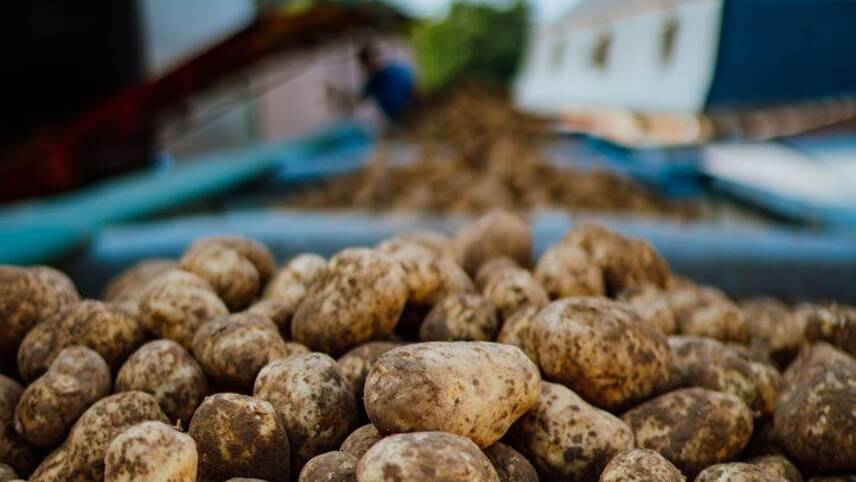Register for free and continue reading
Join our growing army of changemakers and get unlimited access to our premium content

The new commitment was unveiled as part of the company’s latest sustainability report
McCain’s new commitment will see potatoes grown in a way that protects soil health and quality, while utilising natural processes to prevent plant diseases and improve crop resiliency against climate-induced severe weather events.
By allowing the soil to recover and different crops to grow, regenerative plots also sequester carbon. Given that the agri-food sector accounts for more than one-fifth of global annual emissions, allowing soil to recover and different crops to grow and sequester carbon is a key mechanism in the mission to reach net-zero.
“The pandemic has put a spotlight squarely on the precarious nature of our global food system,” McCain’s chief executive Max Koeune said. “But the largest challenges we face are related to climate change. It’s estimated that a quarter of man-made carbon emissions come from the production of food, and if we have to grow more food to feed more people, that will only intensify.
“If we don’t transform the way we grow food, the whole system is at risk of suffering irreparable damage.”
The new commitment was unveiled as part of the company’s latest sustainability report, which details progress towards reducing carbon emissions from farming, storage and freight by 25% by 2030 and halving operational emissions by 50% by 2030.
McCain revealed that absolute carbon emissions were reduced by 6% last year, alongside a 5% decrease in water use in water-stressed regions and a 5% increase in renewable electricity usage. The company has pledged to move to 100% renewables by 2030.
Other targets include sending zero waste to landfill, removing palm oil from all branded products, making all packaging recyclable, reusable or compostable and donating 200 million meals to global foodbanks, all by 2025.
Farming practices
Last year, McCain launched a £25m investment to support British potato farmers during the coronavirus pandemic by encouraging sustainable growing practices.
McCain’s Potato Farmer Pledge will see £25m provided through a multi-year loyalty scheme that rewards farmers for growing more sustainably, a fund to access new infrastructure and technology to improve harvesting and growing techniques and new contracts that better reflect the costs of production to ensure fair and sustainable contract pricing for growers.
The company is also working with McDonald’s on a “Sustainable MacFries Fund” to support British potato farmers to use new techniques and technology that will improve soil quality and water management.
McDonald’s and McCain will provide £1m in grants to growers. Farmers will be educated and trained in improving soil structure while using new infiltration tines for MacFry planters. The technology will increase the uptake of water in both the soil and roots.
McCain was part of a group of British food and drink manufacturers that developed a series of ambitious sustainability commitments in 2016 to improve productivity across the sector.
The Food and Drink Federation (FDF), which represents 16% of the entire UK food manufacturing sector, unveiled the ‘Ambition 2025’ document, which ramps up industry efforts to reduce environmental impacts, protect natural capital, and contribute to the delivery of a sustainable food system for the future.
Under Ambition 2025, FDF members are tasked with achieving a 55% reduction in CO2 emissions by 2025 from a 1990 baseline.
Matt Mace


Please login or Register to leave a comment.